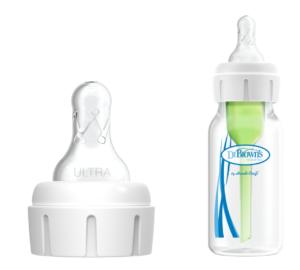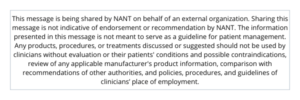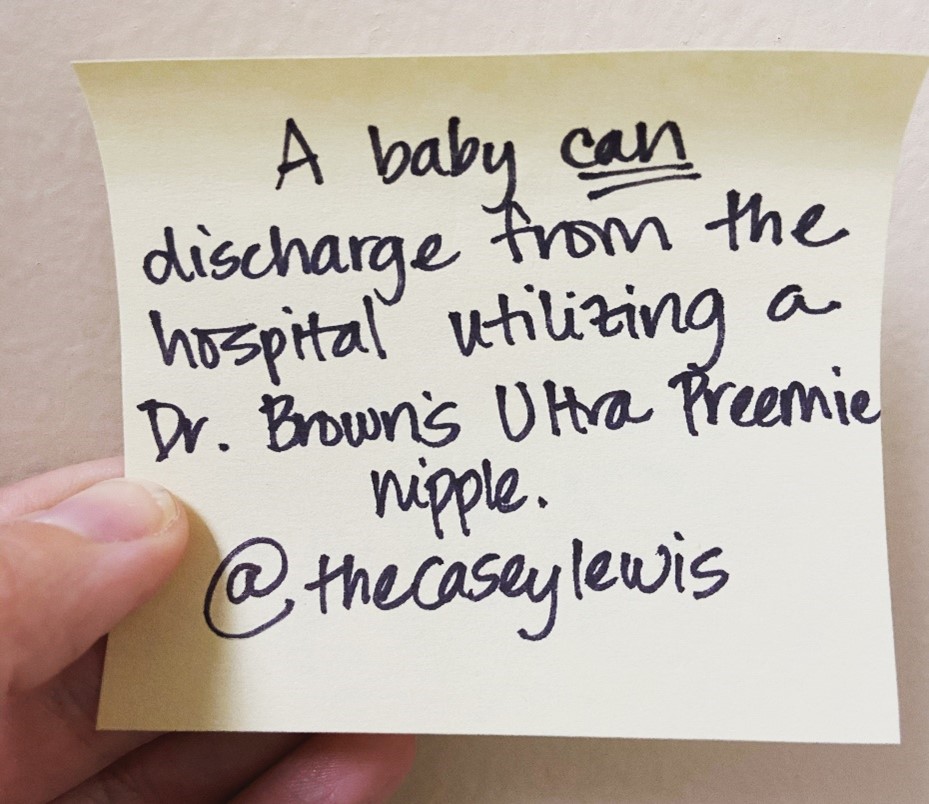
It’s discharge time. An infant with a history of prematurity is full po, gaining weight, with no episodes. The Provider on service states that the baby cannot be discharged on the Ultra-Preemie™ nipple. As the feeding therapist, you know this is possible although there is minimal evidence to support your recommendation. You know if the infant feeds with a faster flow nipple, the feeding will be unsafe. Thanks to research over the past decade on infant feeding and nipple flow rates, you now have the support to help make your case.
Infants in the NICU, and especially premature infants, may require a slower flow rate to assist in maintaining baseline respiratory reserves and the timing of the dynamic airway adjustments that surround the swallow (Shaker 2017). Research has also shown that slowing the flow can help avoid the onset of respiratory fatigue and what can follow as a result. In contrast, a faster flow rate can worsen physiologic stress, behavioral distress, and fatigue related to feeding in fragile feeders (Pados 2017). Providing slower flow rates is now one of the most common supportive strategies in feeding success with premature infants. The struggle that remains is the challenge of the assumed need for advancing the flow rate before an infant is discharged home. Of course, as infants exhibit improved skills and tolerance for increased flow that is supported by individualized assessment, faster flow rates can be used. There is no research, however, that requires a faster flow to be used before discharge or when an infant reaches a certain age. In addition, “no studies have found detrimental effects of slow-flow nipples.” (Pados 2021).
Infant feeding should progress as the infant directs. This is Infant-Driven Feeding: The infant communicates with cues and behaviors, and the feeder responds in an individually supportive way. Safety is first. When safety is supported, the other goals of feeding -nurturing, functional, developmentally/individually supportive- will follow. Upon discharge, infants need to be supported to feed safely AND to promote positive feeding experiences that will follow them for a lifetime. If this means an infant is discharged from the hospital on an Ultra-Preemie™ or Preemie Flow™, your professional opinion and the research should be relevant for optimal care for the infant. Scheduling a follow up visit for assessing progress once the infant is stable in their transition home, may be ideal for an infant.
Quickly recommending a higher flow nipple because it is ‘required’ at discharge, will result in feeding issues for the infant AND frustration for the parents, possibly resulting in feeding challenges at home and possible readmission.
The NICU is not Vegas! What happens in the NICU doesn’t stay in the NICU. The experiences we create in the NICU can affect feeding for LIFE. Make the recommendation with the research to support and you will be the HERO for the infants in your care and their parents.
For more information on the Dr. Brown’s Medical™ Ultra-Preemie™ nipples, Zero-Resistance™ bottle systems, and Infant-Driven Feeding™, go to www.drbrownsmedical.com or email medinfo@drbrownsmedical.com

References
Photo used with permission: Casey Lewis, MS, CCC-SLP, CNT, CLC, NTMTC
Owner & Endoscopist | TexScope, LLC
Pados B. Milk flow rates from bottle nipples: What we know and why it matters. Nursing for Women’s Health. 2021;25(3):229-235. https://doi.org/10.1016/j.nwh.2021.03.006
Pados, B. F., Thoyre, S. M., Estrem, H. H., Park, J., Knafl, G. J., & Nix, B. (2017). Effects of milk flow on the physiological and behavioural responses to feeding in an infant with hypoplastic left heart syndrome. Cardiology in the Young, 27(1), 139–153. https://doi.org/10.1017/ S1047951116000251
Shaker C. Infant-guided, co-regulated feeding in the neonatal intensive care unit. Part II: Interventions to promote neuroprotection and safety. Semin Speech Lang 2017;38:106–115. DOI: http://dx.doi.org/10.1055/s-0037-1599108.


